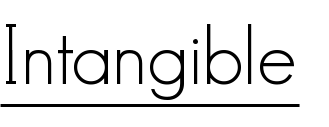| |
The
word nikki translates as “diary”, a
word derived from the Latin diarium
meaning “daily allowance”. The French equivalent is journal. You can find the stem, jour
(day), in a word such as bonjour,
literally “good day” in English. If you look up the word journal in a French–English dictionary, you will find various
meanings: newspaper, periodical publication, diary, or logbook. So a person
keeping a diary might be called a “journalist”, as she or he is recording
day-to-day happenings of her or his own life.
Ways
of keeping a diary vary from person to person. Some like to write in a three-
or five-year planner, others choosing a volume of their liking and keep on
writing, following their heart. I have been keeping a diary for 30 years in volumes
of my or my husband’s choice, or ones that I bought on trips abroad.
I
am looking at them now. My, my, was it really me who wrote all this? Honestly,
I can hardly hide my surprise at the pile of diaries stacked in front of me.
Reading over them again, in chronological order, I realize that diaries have
surprising powers I never before imagined. Professional writers aside, ordinary
people write solely for their own pursuit of “the truth, and nothing but the
truth”; very few would bother to write lies. They are a record, a personal
history. That's why they deserve credit.
Diaries,
I always think, have two functions. One is that of a memorandum, a reminder,
keeping a record of what happened on a particular day: for example, concerning your
health, the weather, annual events, festivals, and so forth. In my case, as an
aficionado of classical music, there are entries about concerts and, as the
widow of a beloved husband, notes on nursing care, the detailed records of
which have turned out to be useful for others in the same difficult situation.
The
other function of diaries is to make a record of one’s inner response to the happy
and joyful, agonizing and painful episodes of life. Most importantly, your
diary preserves descriptions of how you tasted and dealt with these ups and
downs. A strong Intangible Power can be
generated when you leave a record of your introspection. When you come to read
them again, diaries will give you confidence, encouragement, courage, and
sometimes solace. Back then, faced with a problem, I stood firm, racked my
brains for a good idea, and finally made it through––so I can do the same
again. This is the most important benefit of a diary for me: it can lead to an
unexpected self-discovery. You begin to see yourself.
I
ask myself: Have I undergone a gradual change in the course of my life? I might
have changed a little bit, influenced by acquired elements such as social
events, time, and age, but basically, I think, I am the same person. A diary is
an exclusive memo about yourself, and when you reach a certain age, you will
feel it to be an irreplaceable, bosom friend.
Diaries
can be used as a reference book to confirm the past, both from Tangible and Intangible viewpoints. It is precisely because you
wrote every sort of thing down.
Please
find a diary volume that suits your taste at a stationery shop. The New Year is
just around the corner. Treat what and how you write in a diary as your “daily
allowance” from Heaven. Why not try?
It
wouldn’t hurt to write just a few lines, surely?
|
|
